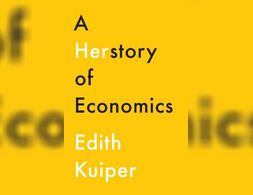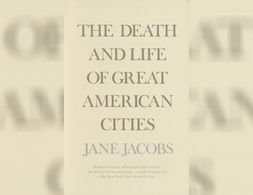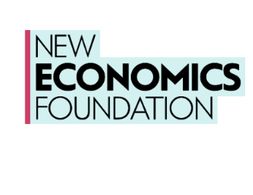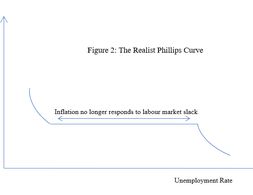✕
525 results
In this book, distinguished economist Edith Kuiper shows us that the history of economic thought is just that, a his-story, by telling the herstory of economic thought from the perspective of women economic writers and economists. Although some of these women were well known in their time, they were excluded from most of academic economics, and, over the past centuries, their work has been neglected, forgotten, and thus become invisible.
In this ambitious and impressive new book, journalist Howard French seeks to excavate the long elided central importance of the African continent as the “linchpin of the machine of modernity.” In the story of modernity, he writes, the role of Africa is diminished, trivialized, and erased, and by filling in some gaps in this story, he retells the story of modernity.
The book is a collection of 51 texts by different scholars and activists, who each adds a dimension/perspective to the topics of degrowth and societal transformation. A societal transformation towards a degrowth society is dependent on a lot of ideas coming together and creating change from various starting points within a society. Therefore, the authors are quite diverse and their contributions vary from being philosophical, natural science based, economic, sociological and so forth. Some are specfiically focused on a concept and others are a more broad critique of e.g., capitalism or growth.
The deceleration of world trade since 2011 has been widely discussed How much is due to a reversal of international production fragmentation And how much is due to decreasing demand for trade intensive goods The authors present a consistent framework that quantifies their relative importance A central concept in the …
A direct and fundamentally optimistic indictment of the short-sightedness and intellectual arrogance that has characterized much of urban planning in this century, The Death and Life of Great American Cities has, since its first publication in 1961, become the standard against which all endeavors in that field are measured.
A Heterodox Approach to Economic Analysis This important new book introduces students to the fundamental ideas of heterodox economics presented in a clear and accessible way by top heterodox scholars It offers not only a critique of the dominant approach to economics but also a positive and constructive alternative Students …
Why is it that some countries become rich while others remain poor? Do markets require regulation to function efficiently? If markets offer an efficient way of exchanging goods, why do individuals even create firms?
This book provides a comprehensive description of this intriguing new area of feminist economics. It includes discussion of what constitutes feminist economics and how feminist economics is different from other approaches
Economics is extremely sick. It is so locked in its past that nearly all of its introductory textbooks are modelled on one that appeared in 1948. The discipline cannot continue in its autistic state much longer.
Imperialism is not only about military force and political pressure applied by developed capitalist countries on less developed ones for economic gain It also has an everyday dimension Countless acts of production and consumption the current SUV boom being a prominent example draw on exploitation of resources and labour from …
Noneconomists often think that economists' approach to race is almost exclusively one of laissez-faire. Racism, Liberalism, and Economics argues that economists' ideas are more complicated.
This course covers recent advances in behavioral economics by reviewing some of the assumptions made in mainstream economic models, and by discussing how human behavior systematically departs from these assumptions.
"First published more than a decade ago, Globalizing Capital has remained an indispensable part of economic literature. This classic book emphasizes the importance of the international monetary system for understanding the international economy. The second edition, published in October 2008, has consistently appeared on syllabuses since its release
The policy briefing provides a data-rich overview over the budgets planned for public services in the UK and their connection to inflation expectations. It highlights the fact that inflation might lead to "invisible" cuts to public sector budgets.
The most influential and controversial economist of the twentieth century, John Maynard Keynes was the leading founder of modern macroeconomics, and was also an important historical figure as a critic of the Versailles Peace Treaty after World War I and an architect of the Bretton Woods international monetary system after World War II.
This is an important contribution both to advancing theoretical and empirical understandings of African monetary sovereignty and to putting problems and possibilities relating to African monetary sovereignty on the political agenda This is of utmost importance given that these issues have largely not received much attention in contemporary discussions of …
This book represents a new foundation for the study of microeconomics, viewed from a broad perspective that takes into account new developments at the intersections with psychology, political science, the natural sciences and philosophy.
In this essay, the principle of capital accumulation, as well as the idea of homo economicus as the basis of the growth model, are located and analyzed from a feminist perspective. The sufficiency approach is presented as an alternative to these two economic logics.
What are the implications of the politics of "behavioural change"? Alexander Feldmann took a closer look for you on nudging and framing and if this is a legitimate instrument being used by the state to make us behave better in terms of our carbon footprint.
Markets are the focus in modern economics: when they work, when they don’t and what we can or can’t do about it. There are many ways to study markets and how we do so will inevitably affect our conclusions about them, including policy recommendations which can influence governments and other major organisations. Pluralism can be a vital corrective to enacting real policies based on only one perspective and a plethora of approaches provide alternatives to the canonical view. Although they have differing implications, these approaches share the idea that we should take a historical approach, analysing markets on a case-by-case basis; and they share a faith in the power of both individuals and collectives to overcome the problems encountered when organising economic activity.
Economic sociology is an entire subfield and one could write an series on it, so I’m going to stick to probably the most prominent economic sociologist and the founder of ‘new economic sociology’, Mark Granovetter.
What made the false assumption that saving the economy at all cost during a pandemic so popular? This paper discusses different pathways through the COVID-19 pandemic at national and international level, and their consequences on the health of citizens and their economies.
From the perspective of mainstream theory the effectiveness of monetary policy in bringing down inflation depends on two very important equations the aggregate demand equation and the infamous Phillips Curve Without these it becomes more difficult or rather impossible for central banks to carry out monetary policy and obtain the …
Trickle Down Economics - an old topic, but still present in our lives. The idea consists of deregulation of the economy and of lower tax for the top in order to increase the "size of the pie" so everybody would have a bigger piece, even with a smaller share.
In this talk, Eric Beinhocker outlines his ideas of how to ensure a just and sustainable future for Humanity: This includes his interesting Russian Doll approach to unpacking 20th-century economics and proposals of new theories to underpin a new economic system.
Prof. Robert Guttmann looks at the current transformation of the international world order through the lenses of global money and finance.
Overview page for the collection of nobel laureateas on Exploring Economics
In the pluralist showcase series by Rethinking Economics, Cahal Moran explores non-mainstream ideas in economics and how they are useful for explaining, understanding and predicting things in economics.
An overview of the last century economic theories asking what makes a heterodox economist. This lecture focuses on the evolution of the various academic traditions in economics. Lavoie presents his own typology for categorising seminal work within the post-Keynesian tradition while leaving space to acknowledge that categories are not binary, but can be used to help understand the different traditions, and how they have developed over the last decades.
In this lecture, Branko Milanovic gives an overview of the concept of inequality as conceptualized within the classical school of thought.
Podcast series with six 12-minute parts introducing the the values and ideas behind our neoliberal economic system: where it came from, how it spread, and how we could do things differently.
Are there any limits to government spending? In times of war, particularly? And what about the aftermath of such special times when treasuries seemingly feel unshackled from any rules? And are those times really any special? That is what this paper is about.
We use cookies on our website. Click on Accept to help us to make Exploring Economics constantly better!
































